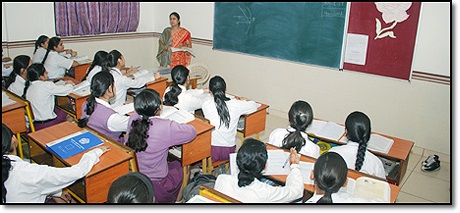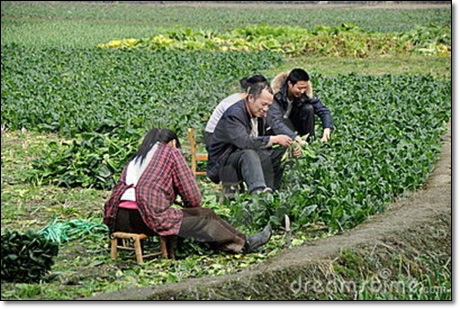

The Law of School and the Law of Farm
By Philip Mudartha
Bellevision Media Network
05 Aug 2013: In this chapter 5 of education series, I will begin with a self-appraisal. What makes me think that I can advise teachers? I have never been a professional teacher, but for a short stint of coaxing teenager girls to study Physics, Chemistry and Math at a Bombay high school. My predicament is akin to that of Catholic Clergy, who in their celibate bliss, double as marriage counselors. Ignorance is bliss, especially in consulting and advising business.
What is The Law of Farm?
That brings me to announce that teachers are not born; they are, like marriages, made. Anyone can learn to become a teacher. This implies that a teacher is a perennial student, more or less like a farmer.

The farmer works on his farm, with a variety of soils, seeds, earthworms and other bio-organisms. He is governed by The Law of Farm. He respects it, believes in it, obeys it and makes amends if he violates it. His common sense is derived from his close relationship with nature and its mischievous, often tyrannical behavior. In nourishing and nurturing each other, they understand each other and become partners. He learns from nature and nature in turn lets him mold it. Experts christen the relationship as bonding within ecosystems.
Farms only have ground floor: no basements, undergrounds, or higher floors like in a school building. The law of farm keeps the feet of its practitioners firmly on the ground, and not in the air. It keeps them in tight embrace with the crops, plants, herbs, fruits and flowers, like the embrace of thenewly-weds.
The Law of School
When a farmer goes to school as teachers, he/she embraces a law diametrically opposed, which let us call as the Law of School. This law gives rules to the teacher to detach himself emotionally from his students. He becomes a superior adult in control of the relationship like one-sided love affair. He has information and knowledge. He is an authority, an expert on the subjects taught. It is his job to teach. Theirs is to learn from him. Only he speaks and they must listen in silence. They must speak only when asked. Their answers must not violate the Law of School, which is that the right answer is in the prescribed textbooks of the course syllabus. Information not contained in the text is heresy. It is false, and wrong.

The Law of School regulates chemical pesticide dosing to students at regular intervals as determined by school administration in the form of written examinations. The answers are tallied with textbook answers and given full marks if they conform. CONFORM is the overriding concern of schools and teachers bound by this law.
Application of law of farm to school
If on a farm a pesticide is administered without understanding its consequences, not only the pests are killed; but, along with them, the useful bio-organisms perish. Therefore a pesticide program requires study of ecology of a specific farm and customizing it. In a classroom, setting an examination paper for assessment of retention of course content should not result in killing the natural inquisitiveness of students.


Walk into a classroom and watch the forty pairs of eyes staring at you. They are mischievous. They ooze energy and playfulness. They are live-wire. Hyper-active, shall I say?
Any teacher worth her salt instinctively knows the composition of a class on the very first day. So too, when a kid comes home after the first day in a class, he gives a running commentary from which any layman can build a profile of his teacher and other kids. Trained policemen are not requiredo draw profile pictures. This is good; it is the law of farm in control on first day.
What happens from day 2 onwards? Generally, first day is special and does not come again and again. From day 2, teacher takes charge and wants them to learn in precisely the ways she would learn or had learnt. It is her learning experience and not that of her students. “I have learnt precisely this way and this is the way the subject should be taught.”
Different students learn differently
The response by Francis Saldanha to my first article in this series goes: ….. Notably well-known teachers…were the sources of information and guidance and that too only for those high achievers! (Italics mine). Teachers, especially at secondary level (Class 8-10), teach to the first benchers. They plan their period with sole purpose of portion complete karnahei. Their pace of covering the textbook content (portion) fully and then dictating notes which students copy in long handcan be matched only by the brightest occupying the front rows. The majority which cannot keep pace and cope disconnects mentally and often physically. They role-play as weeds, pests and mischief-mongers. They manufacture paper rockets, aero-planes and other creative flying devices that a school-teacher often finds coming at him while he is facing the black-board.
Here are a few guidelines to teachers:

1. Plan the period for the entire class, not the select few, who will learn anyway, even without you.
2. Plan ahead and prescribe reading of text book content well in advance. It is important that students do not get first information of the subject in your class. Ensure that the students come to the period with written questions, doubts, comments and even their own opinion on the subject.
3. Adopt learning processes where you learn as well; turn the classroom into a market of ideas and group chatter. For this, you may divide the class of forty into 5 or more groups, red house, green house, blue house etc., and engage the houses in role-playing, giving information, cross examining houses, and yes, presenting arguments against or for a house’s view and rating each other’s participation.
4. I have used ‘learning outcomes’ in previous chapters. I look forward to a volunteer among my readers to come up with a definition of outcome. A school-teacher is preferable. School-teachers are generally shy to respond to amateurs. They are like clergy, who seldom engage in theological or philosophical debates with laity. At least one response defining outcome is important, because, the chapters will move into secondary school level focusing on outcomes. This series was at primary school level and had focused on giving information or knowledge. That is only one step in basic education. There are more steps in imparting effective basic education.
5. The teachers have within their authority the capacity to bring changes to school system. The managements are not bothered with classroom details as long as school brand and reputation is not diminished. As long as school discipline and rules are not broken, there is autonomy, freedom and vast scope in engaging by teachers in learning processes which deliver resultsas outcomes.
6. Apply the Law of Farm. After years of applying the Law of School, you may find it difficult at first.
Also Read
Part 1 : The resurrection of Humanities Stream in degree programs
Part 2 : The secondary school courses of study and syllabi
Part 3 : Basic Education: Challenges and Opportunities